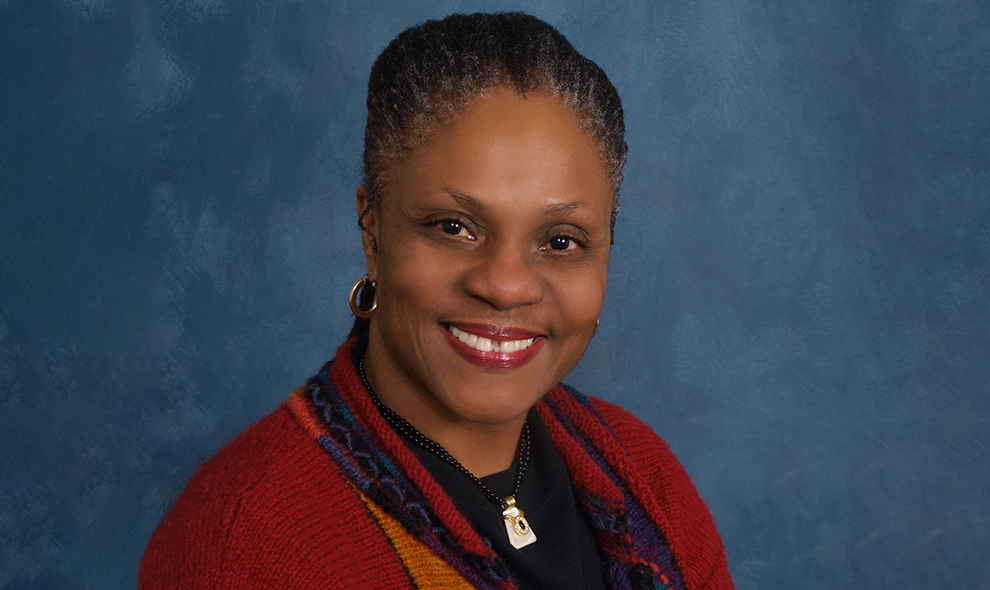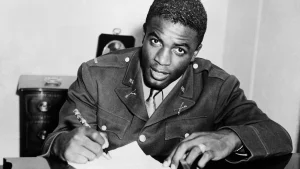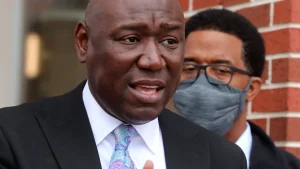Speaking to the WSJ The Future of Everything on what she saw was the future of combating inequity in America, Selwyn Whitehead said: “The only reason I have some semblance of hope is when I see the multicultural, multiracial, multinational makeup of the supporters of the BLM Movement, led by America’s youth of all stripes. Hopefully, these young people will help our country turn the corner.”
Following on from her insightful words, this month, we have the delight of reconnecting with Selwyn, to discuss more than just her expertise in bankruptcy law. We touch on her journey into the legal sector, the implicit and explicit racism she has faced, the impact of institutional racism and what can be done to tackle such bias in the legal workspace.
When did you know being a lawyer was what you wanted to do?
Although my dad thought I could be a great lawyer when I was a little girl, no one else in my family thought I would be any good at it. They didn’t think my limitations had anything to do my intellect, but rather because I was introverted and rarely spoke unless I really had something to say and felt the person I was talking to was serious enough for me to spend any time sharing my thoughts them; a trait I still carry with me today.
However, even when I was very small my dad went out of his way to draw me out on subjects of importance and liked the way I would analyse things, even if he did not agree with me. And so he urged me to focus on developing my analytical and logic skills. So, even though I spent the first part of my career in technology, as a systems engineer and outside salesperson for a few major telecommunications companies, a career that also required similar skill sets, the law periodically called out to me. And after I became an unmarried woman and again with my dad’s urging and support, I started law school in my mid-forties, obtained my JD and a couple of LLMs and got my licenses in 2005 at age 50. So, although I sprouted some early interest in the field, I’m really a late-law-bloomer.
I have come to know a set of facts that very few Americans seem to truly understand and those that do rarely admit: Probably the most significant factor that led to the formation of the great American middle class in the 1950s and 60s were the components of the taxpayer-funded GI Bill of Rights that educated hundreds of thousands of returning GIs after WWII and the Korean Conflict and also gave these same men, and they were mostly men, access to government-backed low/no-cost loans to purchase their homes and start their businesses, including law firms. However, and unfortunately, even if they could gain access to some or all of the educational benefits of these programs, and some did, because of Redlining, most Black returning soldiers and their families were denied access to the funds to purchase homes or start businesses.
So, when I hear some white folks, mostly white men, whose fathers and grandfathers served in WWII or during the Korean Conflict who obtained the government funds that paid for both their undergraduate and law school or other professional school educations opine that the reason Blacks have not made much economic progress in this “the land of opportunity for all” is because we, as a race, suffer from some form of self-sabotaging pathology, which coupled with our general lack of intellectual capacity and drive make us unfit to practice law, I know they don't know what they are talking about, nor do they understand that I know exactly how and why they and their families got the financial leg-up that has led them to economic prosperity they enjoy today.
What challenges did you have to overcome along the way?
Like so many others, the biggest issue for me was figuring out how to fund my own legal education. At first, I thought I could multitask in the same way I had achieved my goals as a wife, mother and student: work while going to undergraduate and technical schools. However, I found the study of the law to be very demanding. So, like many others, I took out student loans. Likewise, after I completed my legal education I had to figure out how to fund my own practice, something I must continue to grapple with to this day.
In their eyes, we are too stupid to realise that we are “too stupid” to practice.
What prejudices have you faced as a Black lawyer?
Overall I found that most, but not all, white lawyers, including those who are women, do not believe that Black lawyers like myself (and in general) should be in the profession, especially in the highly specialised area of bankruptcy law. I have had “colleagues” call me up or tell me to my face that I have no business learning bankruptcy law on the job because I should not be allowed to “take business away from them”. Their logic, as I understand it, is a non-theatrical real-life form of “catch-22”: A lawyer should only be able to practice bankruptcy law if she is taken under the wings of an existing practitioner or firm and existing practitioners often won’t take Black lawyers under their wings because we are not suited to practice in the area; in their eyes, we are too stupid to realise that we are “too stupid” to practice.
What is your best response / what have you learnt to be the best way to handle the above?
After my folks divorced, I lived with my mother between the ages of 6 to 13 and I went to live with my dad and grandmother until I graduated from high school and got married. During these years, my mother remarried another professional service member and the family travelled every other year or so to a new military installation, usually in the Southern United States, as such I attended several new schools during my youth. My mother knew that I was a pretty fast learner and got bored very easily, so she insisted that I research and find the best public school in whatever new town where we were stationed. Then I’d have to figure out how to get enrolled and how to get there. Most of these schools were in the South and were only partially integrated, if at all, at the time, so I resulted in utilising a court-sanctioned desegregation technique euphemistically called “free choice”, meaning that any white child could go to any black school if they chose to and/or any black child could go to any white school they chose to attend. What this meant, in reality, was that none of the black schools were integrated at all and only one of the white schools was integrated, (the one that was integrated by me). As such, my fellow white students would not talk to me. So, I ignored them and focused on my lessons. This life lesson is how I handle racism today: I ignore the perpetrators as best I can by giving them a very wide berth and focus on representing my clients to the best of my abilities.
The legal sector is almost totally white, mostly male, with the concomitant level of white privilege engrained throughout - from law school through to the bench and the bar.
Do you think racial bias is still an issue in the legal sector? How should this be handled?
While I have not interfaced with the whole universe of law school entrance examiners, law professors, practising attorneys and judges, I must share that based on my own experiences, observations and research, racial bias is still a big problem in the legal sector, and in all segments thereof.
The legal sector is almost totally white, mostly male, with the concomitant level of white privilege engrained throughout - from law school through to the bench and the bar. However, I must once again say that my overall characterisation does not condemn each and every white member of the legal sector I have come across; in fact, I have met some truly wonderful white male lawyers and judges who have befriended me and treated me with the respect I am due as a hard-working member of the bar and an Officer of the various Courts I am admitted to. However, and unfortunately, because I can name these individuals from memory, the fact that they stand out in my mind as exemplars, make the relative absence of the others I have come across more pronounced.
What steps need to be taken for there to be more Black lawyers in the industry?
In the American judicial system, there is another “catch 22” that needs to be abolished. Our highest courts have issued precedential decisions finding that in some instances, even the mere facilitation of an open discussion of the objective facts that racial discrimination exists with regards to Black’s equal access to higher education (including our equal access to law schools and therefore judicial clerkships), and Black’s access to employment opportunities (in law firms, governmental agencies and governmental subcontractors and law school faculties), let alone the advancement of public policies and programs that even attempt to level the playing field, are in and of themselves discriminatory. How bizarre. So, it is my firmly-held belief that until something is done to truly allow Black people real equal access, first to law schools and then to the employment opportunities that will allow us to thrive while making a significant contribution the industry, our communities and our overall society, we will make no significant progress in overcoming the existing structural barriers.
[ymal]
What does being a female lawyer in 2020 mean to you?
It means that I must find a way to continue to not only survive, but even thrive in an industry that fomites gender-based discrimination and racial animus that has always been right below the surface, but which has been exasperated by the current politically and racially-charged climate in America. I must do so in order to be of service to my community. I believe my sisters-in-the-law and I are up to the tasks placed before us, simply because we must.
And speaking of sisters-in-the-law, I have to give a big “shout out” to my Senator, California’s Junior Senator Kamala Harris, a woman of Indo-African heritage who considers herself to be Black, like me, and who is a lawyer, like me, for becoming the first Black woman to be placed on the presidential ticket of a major American political party.
I salute Senator Harris not because she is a Black woman, although that fact is important to me and to all the women and girls who look like her and look like me, but more importantly because she is objectively competent to be either the Vice President or President of the United States of America. I also salute Senator Harris for her ambition, her tenacity and her mental strength; all traits she will surely need to rely on in the remaining days of what surely has been and will continue to be a very nasty conclusion of this presidential campaign. But then again, because she is such a monster of a candidate, I believe she is up to the tasks placed before her, simply because she must.
While I wish Senator Harris and Mr Biden well and God’s Speed, I pray that every American female of voting age, and especially every American female lawyer of any race, willfully exercise and not waste her hard-won franchise in this the centennial year of our obtaining right to vote and the most important election in our lifetimes.
LAW OFFICES OF SELWYN D. WHITEHEAD
4650 Scotia Avenue, Oakland, California 94605
Phone: 510.632.7444
Fax: 510.856.5180
Email: selwynwhitehead@yahoo.com
Web Site: www.selwynwhitehead.com
Selwyn D. Whitehead Esq. [JD, LLM Tax Law, LLM IP Law, California Bar Bankruptcy Law Certified Specialist] is a San Francisco Bay Area bankruptcy and tax attorney whose practice focuses on helping her clients manage their wealth through effective estate and tax planning and/or manage their debt through debt restructuring or bankruptcy. Selwyn also helps her clients facing foreclosure and represents clients with emotionally and financially “taxing” issues before the Franchise Tax Board, the IRS and the U.S. Tax Court.
Prior to going into private practice, Selwyn managed a group of attorneys and paraprofessionals in Fireman's Fund Insurance Company's Claims Department, where she was responsible for auditing the claims and case handling practices, performance, fees, and expenses of outside defence counsel.
Selwyn also produces and hosts her weekly talk show, SELWYN’S LAW, which discusses the law as related to consumer and small business finance airing Saturday mornings at 10:00 AM on the Christian Radio Station KFAX, located at AM 1100, whose broadcast footprint includes the San Francisco Bay Area and nationwide on the Internet. And beginning in April 2020, Selwyn expanded the reach of SELWYN’S LAW when her show was picked up by World-Wide Christian Radio, WWCR, which rebroadcasts her shows world-wide over short-wave on Friday afternoons.





















